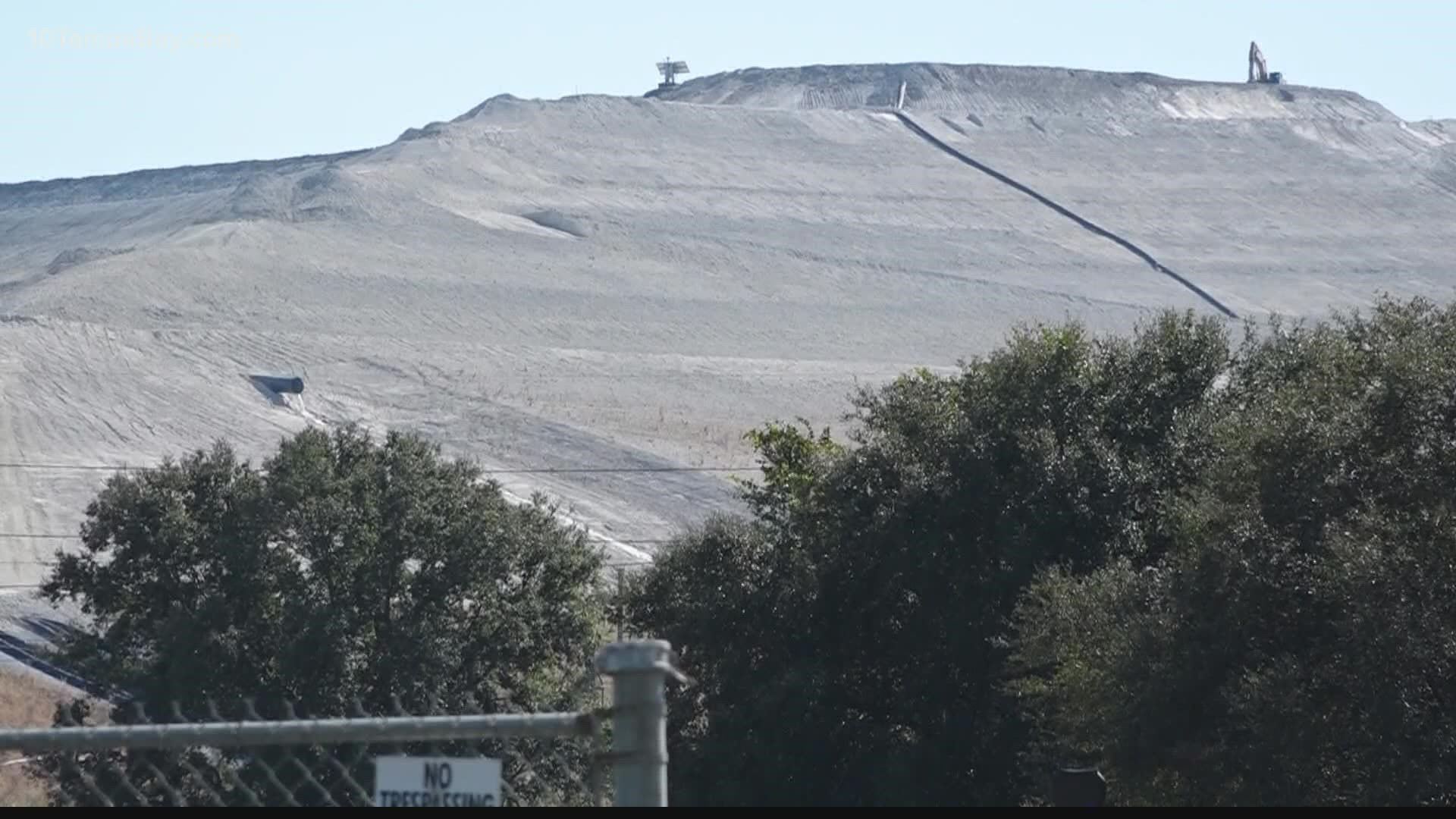POLK COUNTY, Fla. — Editor's Note: The video in the player above is from when Mosaic's New Wales facility received a permit to expand on Oct. 15.
After quietly being given the go-ahead by the Florida Department of Environmental Protection to expand its gypsum stack at its New Wales facility, Mosaic is having to pump the brakes.
The FDEP says information indicated "multiple acoustic detections," otherwise known as seismic activity, at the site of the company's south gypsum stack from Oct. 8-18.
The discovery means gypsum stacking operations can't proceed in the "Phase III East area" until the FDEP determines no additional stabilization is needed. It's unclear how long that process could take.
The report caused the FDEP to send a letter on Oct. 21 to Mosaic addressing the subsurface activity detected at the New Wales facility.
In the letter, the FDEP states that both its regulatory staff and the state geologist conducted a review of the information provided on the seismic monitoring at the south gypstack which "indicates the presence of a subsurface condition that has the potential to adversely affect the integrity of the phosphogypsum stack."
According to the department's spokesperson, there is no indication that a sinkhole has occurred in the area or that there are concerns about the structural integrity of the gypsum stack.
"The department has also emphasized to Mosaic that the follow-up exploratory drilling, along with any additional steps needed to further investigate this subsurface condition, must be completed as expeditiously as possible to ensure that the environment, our water resources and Florida residents are properly protected," Alexandra Kuchta said in an email to 10 Tampa Bay.
Florida Agriculture Commissioner Nikki Fried also chimed in on the situation on Twitter saying, "This is exactly why I’ve been calling on the Florida Department of Environmental Protection to deny any new permits or expansions of gypsum stacks in Florida — the risks are too damn high."
News of the expansion at Mosaic’s New Wales facility has critics concerned.
In 2016, a sinkhole opened up at one of the facility's gypsum stacks, allowing more than 200 million gallons of contaminated water to seep into Florida’s aquifer.
A well-organized social media campaign, including a new generation of people made aware of the risks posed by gypsum stacks following the more recent breach at Piney Point, also opposed the expansion.
“Look, if we’re downstream from this, we have to worry about this,” said Gil Smart with Friends of the Everglades in an earlier interview. “If this is going to impact the aquifer what’s that going to do to our water, that sort of thing.”
But the company says it’s taking safety to a new level.
“There’s just a lot of things in this permit that hasn’t been in our permits in years past,” Sarah Fedorchuk, Mosaic's vice president of governmental and public affairs, said last week.
As a result of the 2016 incident, Mosaic said it continues to test and monitor water quality in the area surrounding the New Wales facility and has committed to doing so for years to come.
Operations at the newly permitted part of the site will likely start in about a year with the capacity to store waste product for another five to six years beyond that, the company said.

